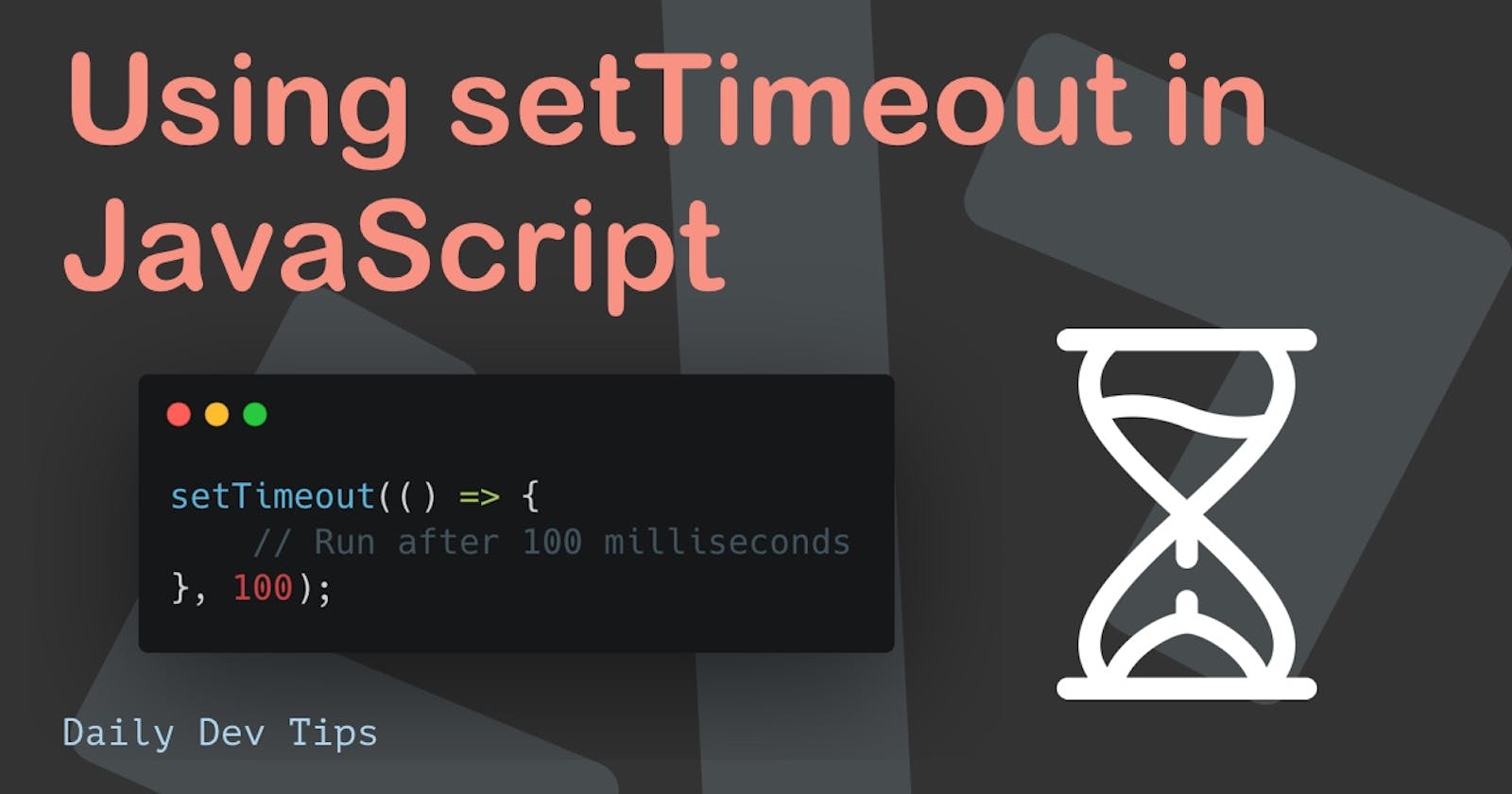When working with JavaScript, there will be a point where you'll want to wait a certain amount of time to run a function.
This can be to animate something after a specific time, for instance.
For instance, in this copy text to clipboard script, we use a timeout to change the text back to what it was before.
JavaScript setTimeout function
In it's most basic form the function looks like this:
setTimeout(() => {
// Run after 100 milliseconds
}, 100);
You see, the number 100 refers to the milliseconds it will wait to run.
As you can see, the basic example uses an arrow functions array that will be invoked. You can also pass your function in the following way.
const coolFunc = () => {
console.log('do a trick');
};
setTimeout(coolFunc, 200);
And again, this will do the same as the above one.
But let's say your function takes parameters. We can even do that with this setup.
const coolFunc = (name, age) => {
console.log(`Hi ${name} you are ${age} years old?`);
};
setTimeout(coolFunc, 200, 'Chris', 32);
As you can see, the props are passed after the timeout parameter.
I see you thinking! What will happen when we set the time to 0?
Good question, and it will be executed immediately.
But! This will only be invoked after all the other functions finish, even if they come later in the script.
setTimeout(() => {
console.log('zero wait timeout');
}, 0);
console.log('first');
const otherFunction = () => {
console.log('The other function');
};
otherFunction();
Which will result in:
- first
- The other function
- zero wait timeout
So as you can see, the setTimeout, even though it has zero milliseconds, will only fire last.
Cancel the setTimeout function
There are these times where you might want to abort the timeout you had planned.
We can define the timeout as a function, which gives us the option to clear it.
const timer = setTimeout(() => {
console.log(`I'll explode! 💣`);
}, 2000);
clearTimeout(timer);
Oef, luckily this bomb didn't go off! 👀
And there you go, we covered all the basics of the setTimeout function.
If you are keen to see some more real-world examples, here is a list of articles using them.
Or you can check out this CodePen and have a play with it.
Thank you for reading, and let's connect!
Thank you for reading my blog. Feel free to subscribe to my email newsletter and connect on Facebook or Twitter

